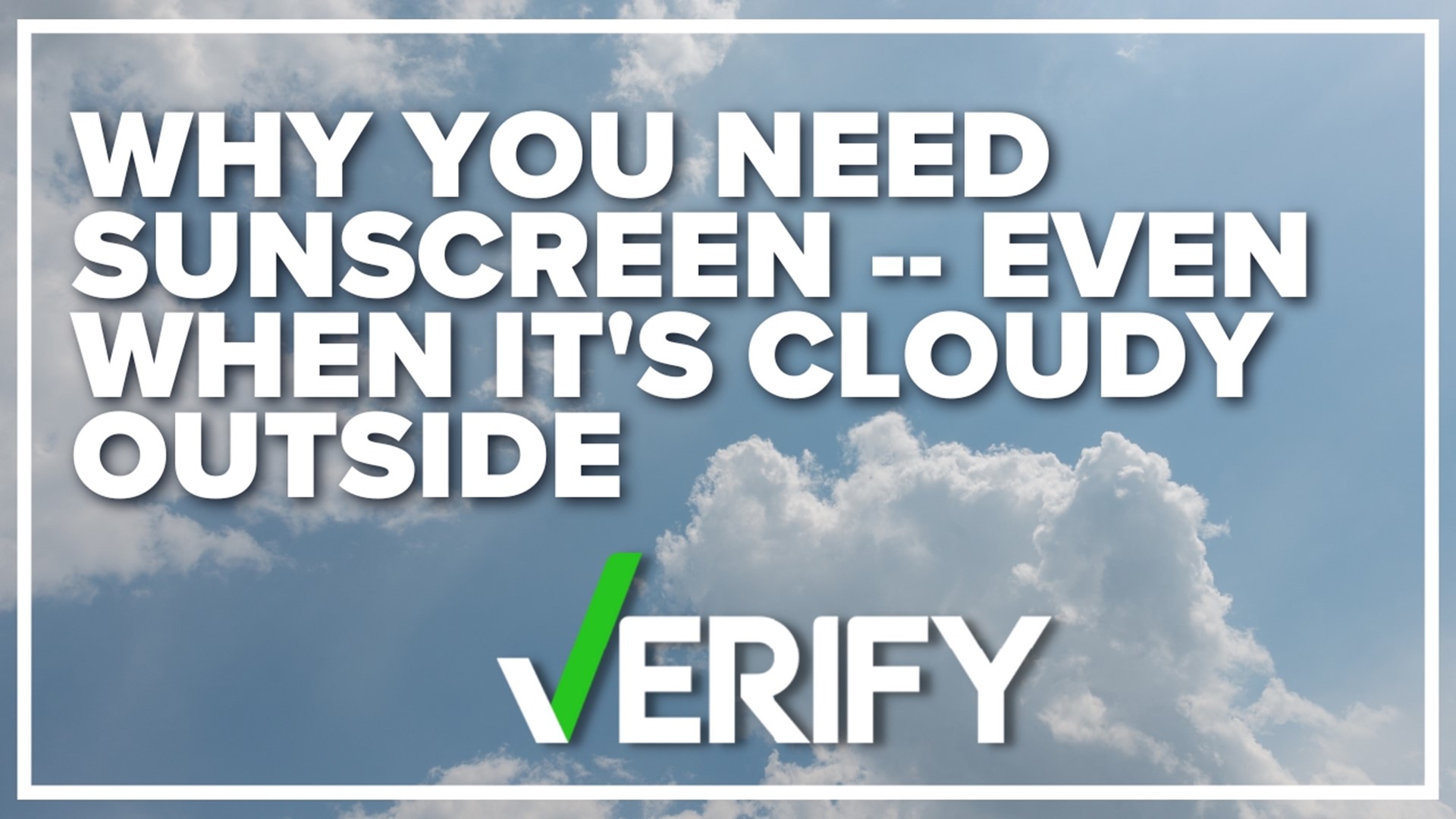CHARLOTTE, N.C. — As many families are wrapping up summer break, they may be taking one last beach trip. When the sun is shining down, it is easy to remember to apply sunscreen, but what about when it's cloudy outside? Can you get burned even then?
OUR SOURCES
The American Academy of Dermatology said even on cloudy days, up to 80% of UV rays can get through clouds.
"Any cloud coverage, you can certainly get damaging effects of UVA rays," Daniel said.
Johnny Gurgen Dermatology said some clouds can create higher UV levels than perfectly cloudless days.
"It depends on what types of clouds," Daniel said. "If you get into the cirrus clouds and other types of clouds, I don't think people will be keen enough to know exactly which clouds are in the sky."
Those cirrus clouds are short, detached clouds that UV rays could get through easier. When it's shady outside, some people forget to put on sunscreen, causing them to get sunburnt.
"It's not as hot, and sometimes heat triggers us to think of sunscreen," Daniel said. "So if it's not as hot, we are not applying frequently."
Daniel explained UV rays could reflect on surfaces like sand and water, increasing your chance of sunburn.
"Sand and water are probably the two most damaging effects that are going to reflect up, so sun rays coming down you can get them to bounce back up, and you can get them a second time too," Daniel said.
The moral of the story is to put on that sunscreen, even if it's cloudy because the sun can still get through and sometimes even create more sunburn depending on the type of cloud.
Contact Meghan Bragg at mbragg@wcnc.com and follow her on Facebook, Twitter and Instagram.
VERIFY is dedicated to helping the public distinguish between true and false information. The VERIFY team, with help from questions submitted by the audience, tracks the spread of stories or claims that need clarification or correction. Have something you want VERIFIED? Text us at 704-329-3600 or visit VERIFY.

